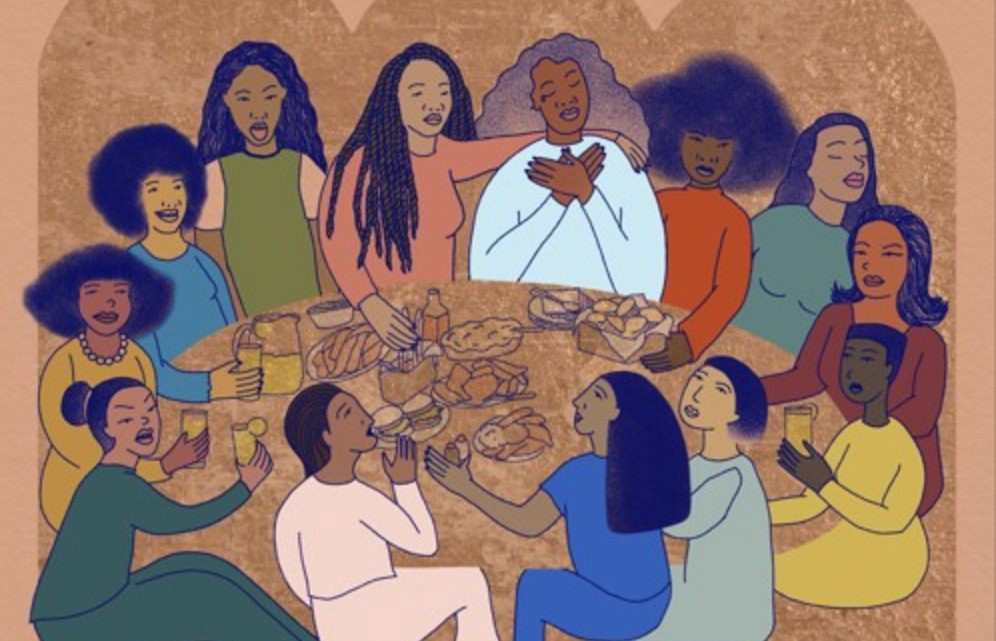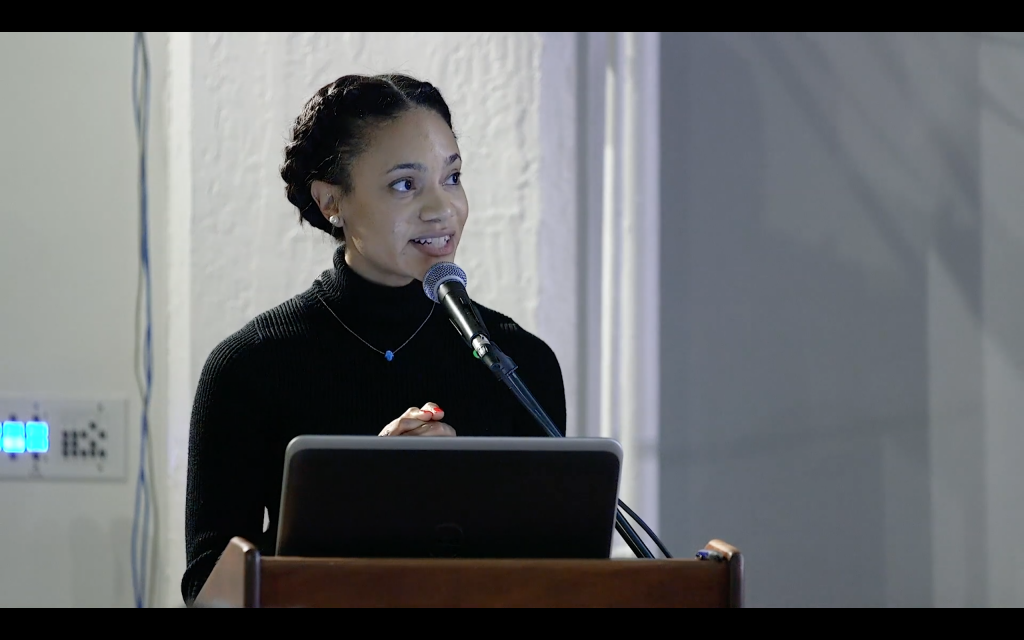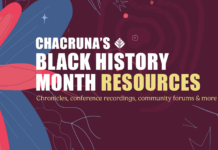- The Damage of White Feminism: An Anecdote - January 10, 2019
Warning: This essay contains racist language that may be triggering for some people.
One white woman tells a story of the old days and uses the slur “nigger.” A jolt of lightning runs through my body; I look to the organizer to see if she felt the shock too. The light in the room becomes heavy, the panelist’s story, more convoluted. I look around the audience to see what’s happening. All eyes look at me to say something. I hear my mentor’s words ringing in my ear, “Don’t leave Sara. Your presence is important.” I get back in the story; she says “nigger” again.
White people often underestimate the impact the n-word has on the minds and bodies of people of color, black folks particularly. This lack of awareness is part of the larger practice of white supremacy and continues to deepen the stain of racism, distancing the possibilities for repair between white and black bodies. It is difficult to imagine a space, especially in the realm of psychedelics, where people of color feel safe and regarded when careless racial slights like this occur.
I was presenting at the Women & Psychedelics Forum held at the California Institute of Integral Studies (CIIS) in San Francisco, CA on November 19, 2018. Women from all walks of life came together to discuss the most prevalent issues facing women in the psychedelic field and to highlight the healing work women are doing. Unfortunately, during one of the panels, a white woman used the n-word twice in her response to a question from the audience about white women’s role in white supremacy.
She is not called out. Other white women don’t do anything to stop her but, instead, look to the black woman to do something. This is white feminism.
Since the incident, apologies have been provided by Chacruna and the woman who used the slur; however, the apologies seem fixed, recycled, and too politically correct. The apology mentions people of color but, regrettably, erases Black Americans from the discourse. How can we talk about the slur without talking about its roots in anti-blackness? Why were Black Americans not mentioned, specifically, in the apology even though they are continuously victimized and traumatized by use of the word?
As a young, black woman, I find myself frustrated and fatigued by white women’s request to be forgiven and certified anti-racist, implicit in their over-intellectualized apologies.
As a young, black woman, I find myself frustrated and fatigued by white women’s request to be forgiven and certified anti-racist, implicit in their over-intellectualized apologies. While white and white-proxy women talk about their non-racist intents, I continue to be collateral damage in their learning process.
For too many times to count, I reflexively collude in soothing white women in their discomfort. This keeps them doing more of the same, using their gender marginality as a euphemism to escape their Whiteness.
As someone who holds space for intentional cross-racial conversations, I fantasize about the day when racial justice work includes repair between white women and women of color. This fantasy seems to come at a cost for me as I discover my role in the present learning process for white women. For too many times to count, I reflexively collude in soothing white women in their discomfort. This keeps them doing more of the same, using their gender marginality as a euphemism to escape their Whiteness.
While it is not my desire to shame white women into doing something different, I would like to challenge white women to develop a critical consciousness around their role and participation in white supremacy. It is not my responsibility to educate you on this topic. On the contrary, you must find your tribe and start the work now. Until then, you will continue to harm the few people of color, and even fewer black women, you currently have in your “safe” spaces.
I am, frankly, too drained to write the paper that examines the ways white feminism continues to disrupt the dismantling of white supremacy in psychedelic spaces. I call on white women in the psychedelic science space to do that. A reflection is warranted, at least for my own healing, that illustrates the complexity of what happened to me in that space.

The warmth of resonate energy fills the air. Smiles and soft eyes greet me kindly as a speaker for the event. I find my seat and settle. I equally find myself curious with the thought of how white people will receive my presentation. Will they hear me?
Will they see me?
Before long I found myself standing, speaking, performing a passage from my life book. A stillness fills the air, and I can hear myself echo, as if I were receiving the message too. Ashe, I see Spirit in their eyes.
I return to my seat, full and energized, ready to enjoy the rest of the forum. I sit through the presentations and receive an invite to join the panel. I oblige with mental hesitation and sit at the end of the stage. I feel marginalized in this predominately white space anyway.
I see women of color coming up to ask their questions and whew, they are calling these white ladies out! Let’s see how the white ladies respond.
Proclamations of white guilt follow fear-based excuses; an avoidance of discomfort at its finest. One white woman tales her story of the olden days and uses the slur “nigger.” A jolt of lightening runs through my body. I look around the audience to see what’s happening and all I see are eyes looking back at me with hopes to say something. I hear my mentor’s words ringing in my ear “Don’t leave Sara. Your presence is important.” I get back in the story.
She says “nigger” again.
I scream on the inside and move around in my chair; it’s hard to stay still through a lashing. Frozen in the moment, I sit still waiting for the story to be over; waiting for her to address white women’s role in white supremacy; waiting for there to be justification for her use of the slur, but there was none. Only laughter from the audience in response to her suggestion for us all to trip together—that tripping was a solution for the years of harm inflicted by white women
I am upset. I am angry.
I now feel an urgency to address her
Words from my ancestors ring in my ear
“When history records this time, how do you want to be remembered?”
I take a breath and go through the motions to look engaged and supportive of the other panelists’ reflections
After all the people are watching…
I anticipate one of the panelists to call her out
Surely somebody will say something
All I heard was social justice theory and rhetoric
A performance of Whiteness
Their escapism from dealing with racially charged conversations
It is my turn to speak
I look down and pause
Knowing I must say something
Anything
But not knowing how
Not recalling any positive examples for how to address a white person when they say “nigger” Without my safety being compromised
The racial wounds from my past are now present
The racial wounds from my past are now present
I am triggered
Stuck
I tell the audience I am checking in with myself
As a way to stall for time
Because at that moment I was doing my best to suppress the sting from the wound
Choosing my safety
Choosing to prioritize white fragility over my own pain
Choosing not to exhaust myself again for the emotional and intellectual benefit of white people
I say something more cognitive
And the audience approves with a round of applause
With my senses muted
I exit stage left
Fading into the performance of Whiteness

This is what oppression looks like. It’s not just the way your body constricts in the incident, but it’s the aftermath—the continuous processing of your experience, the repair you must do for the sake of your sanity.
While some white women traveled home and had moral or intellectual debates amongst themselves about why they didn’t speak, I had to go home and settle my body and figure out how to process what happened. This is what oppression looks like. It’s not just the way your body constricts in the incident, but it’s the aftermath—the continuous processing of your experience, the repair you must do for the sake of your sanity.
As I close, I would like to return to the issue at heart— with the damage done from white feminism, how do we heal? How do we begin repair between white women and women of color in the midst of unresolved trauma? There is no quick fix or simple answer to these questions. We must, relentlessly, discover these answers ourselves. Nikki Giovanni once wrote, “Mistakes are a fact of life. It is the response to the error that counts.” This reflection is my response, my contribution, to mend my wounds from white feminism. Time will tell if white women are willing to do the same.
Editorial note:
For more background, here are links to the original panel discussion and to the subsequent apologies:
Panelist uses the n-word during the Women and Psychedelic Forum (2 times):
Organizer’s initial apology:
Panelist apology after the event:
Collective apology after the event:
Take a minute to browse our stock:
Did you enjoy reading this article?
Please support Chacruna's work by donating to us. We are an independent organization and we offer free education and advocacy for psychedelic plant medicines. We are a team of dedicated volunteers!
Can you help Chacruna advance cultural understanding around these substances?














